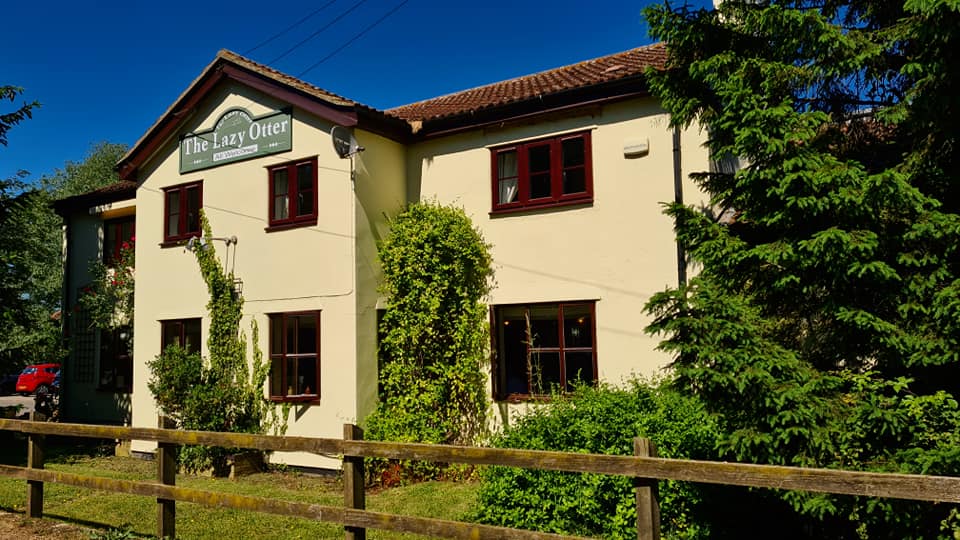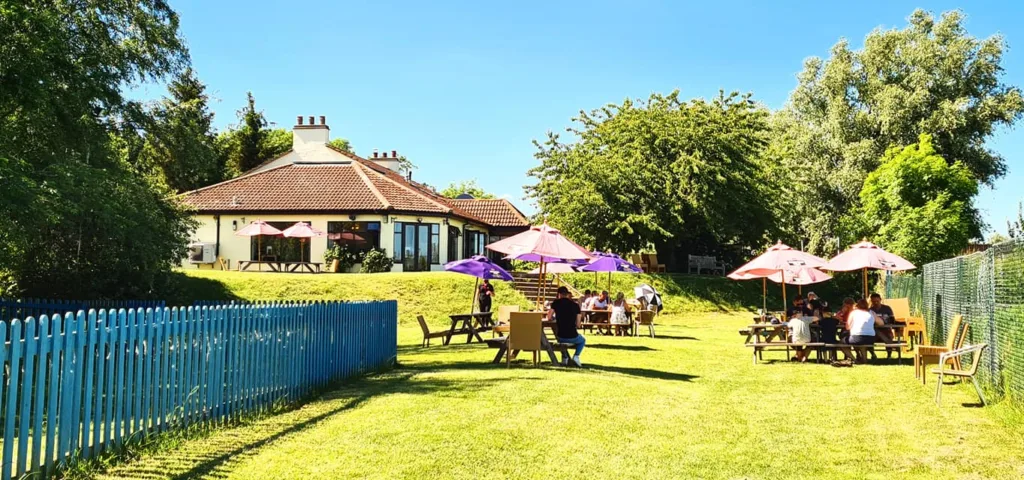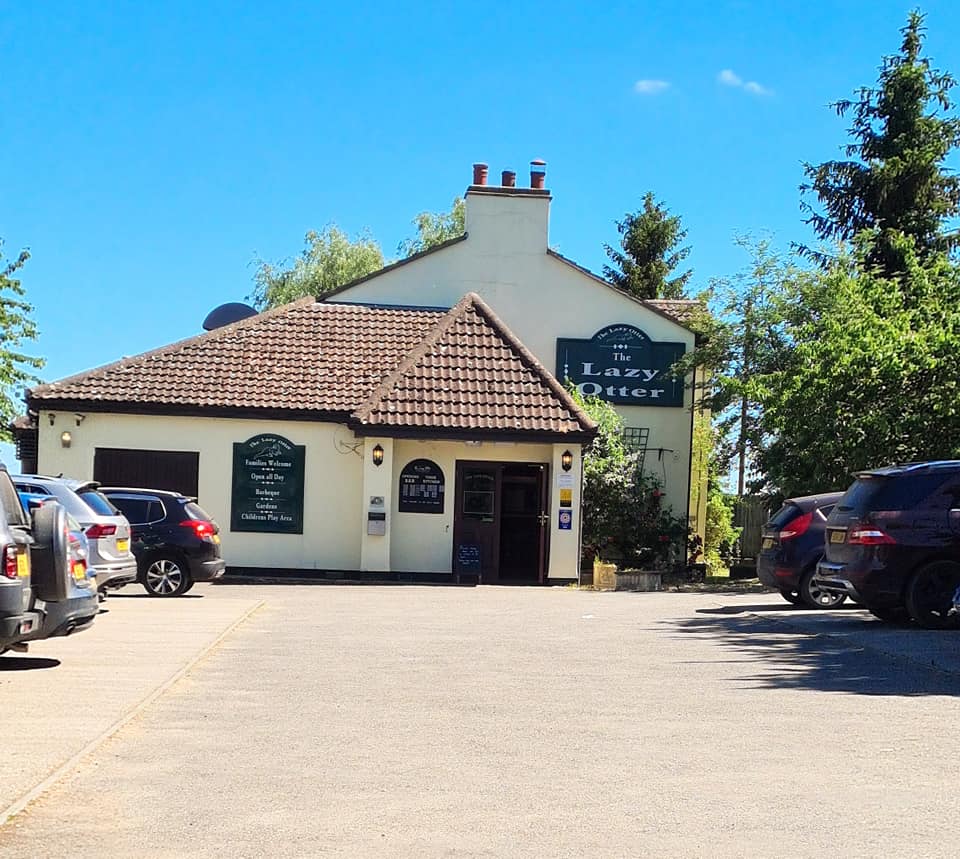A couple who took a gamble in buying a Cambridgeshire riverside pub with no intention of re-opening it have lost a planning appeal to use it as their home.
They have been given nine months to cease using the ground floor pub area of the Lazy Otter at Stretham near Ely.
The Government Planning Inspectorate has sided with East Cambridgeshire District Council who brought enforcement action against the couple.
‘Unnecessary loss of commercial community facility’
Planning inspector Chris Baxter said: “I conclude that the change of use does result in an unnecessary loss of a commercial community facility.
“As such, it conflicts with the development plan as a whole and there are no other considerations including the provisions of the National Planning Policy Framework, which outweighs this finding.”
He dismissed an appeal by Rita Walsh who had lodged the appeal.
East Cambridgeshire District Council had originally agreed that closing the Stretham pub “would result in the loss of a community facility”.
Planners told Stephen and Rita Walsh they had “failed to demonstrate that the facility is neither viable nor likely to become viable for its current community use or an alternative community use”.

The council told them the “unjustified loss of a community facility” was contrary to established planning policies.
Mrs Walsh claimed that the reason The Lazy Otter closed down was because “not enough people used it.
“If a fraction of the people who signed the petition came regularly it probably wouldn’t have closed.”
A petition to retain it as a public house attracted over 800 signatures.
Mrs Walsh had originally told the council that the pub had been marketed for years before they looked at buying it. In the early days it was being offered for sale for £600,000 before agents dropped the asking price to £475,000.
She has also claimed she and her partner “definitely had no intention of re-opening it as a pub.
“It was a topic of conversation we had on more than one occasion with both the owners and the agent. We purposely asked that if it was going to be a problem, we would not enter an offer.
“They told us making an offer wouldn’t be a problem and the agent reminded us that we just needed to obtain the correct planning approval.”

Mr Baxter said an enforcement notice was issued by the council on June 29, 2022.
It set out the breaches of planning control including the “unauthorised material change of use”.
Mr Baxter said he had made some clarifications to the enforcement notice, but these had not altered its substance and “subject to the corrections, the appeal is dismissed, the enforcement notice is upheld, and planning permission is refused”.
Costs plea also dismissed
In a separate ruling he dismissed an application for costs made by Miss Rita Walsh against East Cambridgeshire District Council.
Claims by Ms Walsh of “unreasonable behaviour resulting in unnecessary expense” had not been demonstrated. He ruled against technical arguments put forward that no physical alterations had been made to the building and “these matters are discussed in the appeal decision”.
Mr Baxter said that part of the Miss Walsh’s case was that their residential occupation of the pub does not constitute a material change of use.
He said the council’s detailed case, made clear in their submitted evidence, is that the change of use constitutes a breach of planning control.

The inspector went into details about an application form completed by Ms Walsh which stated that the change of use from public house to residential had been completed by December 2021.
Ms Walsh told him she had completed the declaration incorrectly inasmuch as they lived in the upstairs residential area only.
Mr Baxter, however, said Ms Walsh had stated they temporarily slept in the ground floor public house area for a period whilst repairs were undertaken upstairs. Whilst beer pumps and cellar fittings have been removed by the brewery along with glasses placed in storage.
He said Ms Walsh said the public house could reopen for trading and that no change of use has taken place.
Enforcement visit
“The council’s position on this matter relates primarily to a site visit by the enforcement officer in February 2022, in which it is alleged that the appellant (Ms Walsh) confirmed that they were living downstairs as there was no boiler upstairs and that it was their intention of living in the public house as a residential property”.
He said: “The council also indicate that there were no cooking facilities in the upstairs accommodation at the time of that site visit.
“At my site inspection, I saw that the bar remained in place and the commercial kitchen was intact although seemed largely unused. The gents WC contains cupboards with work tops along with washing machines.
“A shower had also been installed in one of the toilet cubicles and what appeared to be a washing basket full of clothes was also in this room.

“There were a number of residential items scattered around the ground floor premises, which would not normally be considered typical features of a public house, these included bathmats, ornaments, stacks of towels, clothes drying racks, ironing board, vacuum cleaner.
“There was also domestic style furniture such as sets of drawers, a mirror, and bins. Boxes of clothes, towels and bedding materials were stacked up with also a bed and a mattress although these were positioned on their side with a sheet draped over.”
He went on: “Located behind the bar area were tea and coffee making facilities, along with the storage of cups and glasses, boxes containing food items and several fridges.
“In the room adjoining the bar area there was a sink as well as an array of kitchen equipment including pots and pans, plates, bowls, tea towels, food storage containers, cheese grater, a microwave, a combined oven and hob unit and some food items.
“There was also a Wi-Fi router that appeared to be in operation as it was illuminated.”
Mr Baxter said Ms Walsh had argued that the premises retains features which would allow the building to be reopened as a public house.
“However, it is the use of the property that is relevant,” said the inspector.
“There is no evidence before me, from either party, that the building has been actively in use as a public house since at least before November 2021 and that is consistent with the council’s evidence, the appellant’s evidence, and my own observations.
“That being the case the use of the property changed to residential use alone for a considerable period of time before the enforcement notice was issued.
“On the balance of probability, I conclude that the use of the public house changed to solely residential use before the notice was issued.
“Consequently, the appellant has failed to demonstrate that at the date the notice was issued the matters alleged had not occurred; at the date the notice was issued the only active use of the property was for residential use.
Material change of use
“The change of use as solely for residential accommodation is materially different in character and effect from its use as a public house. The change of use from one to the other is therefore a “material change of use” and constitutes “development” and planning permission is required for the development.”
He said there are no permitted development rights to make such a change within the Town and Country Planning (General Permitted Development) Order 2015, and no planning permission has been granted by the council.
Consequently, the making of a material change of use from public house to residential accommodation amounts to “development” and without the required planning permission it thereby constitutes a breach of planning control.
The inspector said the main issue is whether the proposal would result in the unnecessary loss of a community facility.
And on that grounds, he said a route was established to bring about change of use only if it can be demonstrated that it is not financially viable and that all reasonable efforts have been made to sell or let the property for community purposes at a realistic price for at least twelve months.
The inspector said a viability report had been submitted which included information on marketing, viability, village statistics, comparative salaries, trade levels, licensing trade, post Covid-19 economy and effects of the war in Ukraine.
Viability report
“In terms of viability, the VR concluded that the Lazy Otter business is not viable as around £755,750 would be required to purchase the Lazy Otter as a wise business investment,” he said.
“The council disagree with these viability conclusions with queries on matters such as turnover.
“Whilst it is understood the Lazy Otter has not been operating for a number of years and the Covid-19 pandemic would have affected operations, a financial statement which only provides figures for 2017 and 2018 does not offer a sound indication on the financial position of the public house business.
“The appellant has detailed the difficulties of operating a public house business at present with various statistics and data being quoted including approximately 60% of all pubs running at a loss across the UK.
“This nevertheless does not provide compelling evidence related directly to the Lazy Otter business.
“The premises was marketed approximately between the dates of January 2019 until November 2021, with the appellant purchasing the premises in November 2021. There is insufficient evidence that the premises has been marketed since November 2021 or whether the premises has been operating as a public house business.
“From the submitted evidence, I am not satisfied that sufficient justification has been provided to demonstrate that the use of the premises as a public house cannot be financially viable either for the appellant or for another user.”
He added: “The change of use of the premises to residential is an unnecessary loss of a commercial community facility and is therefore contrary to policy.”




















